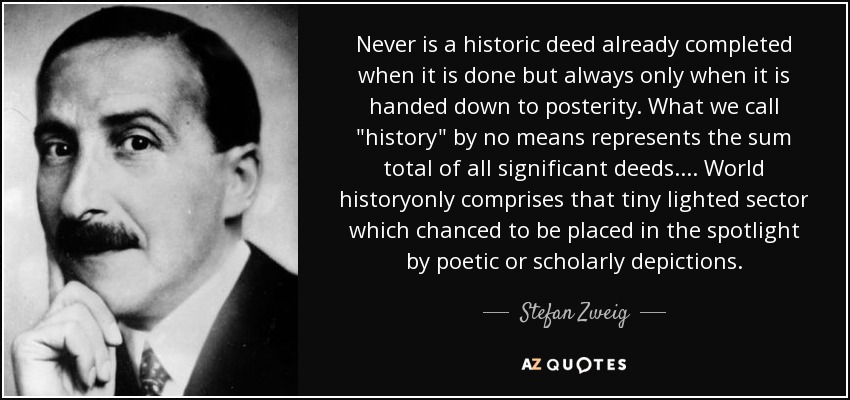History Quotes - Page 35
-
-
 Never is a historic deed already completed when it is done but always only when it is handed down to posterity. What we call "history" by no means represents the sum total of all significant deeds.... World historyonly comprises that tiny lighted sector which chanced to be placed in the spotlight by poetic or scholarly depictions.
Never is a historic deed already completed when it is done but always only when it is handed down to posterity. What we call "history" by no means represents the sum total of all significant deeds.... World historyonly comprises that tiny lighted sector which chanced to be placed in the spotlight by poetic or scholarly depictions.
-
You May Also Like Quotes On:









